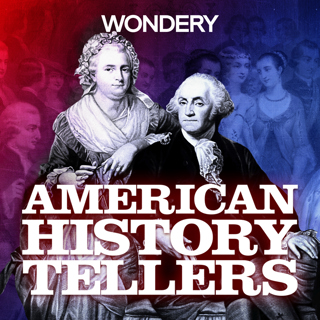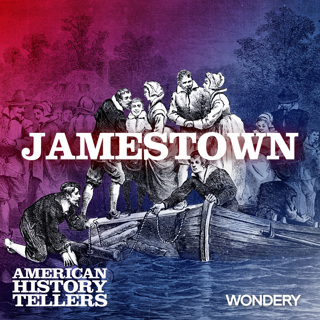
Supreme Court Landmarks | Separate and Unequal | 3
After the Civil War, America began to rebuild a shattered nation. For the first time, the country could create a society without slavery, and a nation where Black people could forge their own path as independent citizens.But by the 1890s, the laws and policies that promised new rights for Black citizens in the South were under assault. In Louisiana, white politicians attempted to turn back the clock on racial progress by passing the Separate Cars Act and reinstating segregation. The move prompted a Black New Orleans activist group called the Comité des Citoyens to rise up and challenge the law. Members Louis Martinet and Albion Tourgee aimed to build a test case – a case that would force the Supreme Court to strike down segregation laws, and disprove the idea that “separate” could ever be “equal.” The high-stakes case would define race relations for decades to come. And it would begin with a brief train car ride in New Orleans, by a 29-year-old shoemaker named Homer Plessy.Listen ad free with Wondery+. Join Wondery+ for exclusives, binges, early access, and ad free listening. Available in the Wondery App. https://wondery.app.link/historytellersSupport us by supporting our sponsors!See Privacy Policy at https://art19.com/privacy and California Privacy Notice at https://art19.com/privacy#do-not-sell-my-info.
4 Nov 202035min

Supreme Court Landmarks | The Cherokee Cases | 2
In the early 1800s, the United States was growing rapidly, seeking land and resources for its expanding population. But the growth threatened Native American communities throughout the East. In the southern Appalachia region, the Cherokee Nation held millions of acres of prime farmland and forests, managed by a centuries-old tradition and a thriving government. But the state of Georgia, and a relentless President Andrew Jackson, set their sights on seizing the land. When the Georgia statehouse declared political war, Cherokee advocates fought back. Newspaper publisher Elias Boudinot and Cherokee Chief John Ross took their challenge all the way to the Supreme Court, forcing Chief Justice John Marshall to weigh in on two monumental cases, Cherokee Nation v. Georgia and Worcester v. Georgia. At stake was a decision that would test the limits of the high court’s power -- and determine the future and sovereignty of a threatened nation. Listen to new episodes 1 week early and to all episodes ad free with Wondery+. Join Wondery+ for exclusives, binges, early access, and ad free listening. Available in the Wondery App. here Support us by supporting our sponsors!See Privacy Policy at https://art19.com/privacy and California Privacy Notice at https://art19.com/privacy#do-not-sell-my-info.
28 Okt 202040min

Supreme Court Landmarks | The Predicament of John Marshall | 1
After the War of Independence, the new American government created the Supreme Court to be have the final word on disputes that the states couldn’t settle. But at first, the Court was anything but Supreme.For nearly a decade, Congress and the President held the real power. In practice the Supreme Court was weak, ineffectual and disorganized – a post so unappealing that many men turned down nominations to serve on its bench. All that would change with the appointment of Chief Justice John Marshall and the arrival of a case called Marbury v. Madison — a political drama that would embroil the new President Thomas Jefferson, outgoing president John Adams, the U.S. Congress, and even the Chief Justice himself.Listen to new episodes 1 week early and to all episodes ad free with Wondery+. Join Wondery+ for exclusives, binges, early access, and ad free listening. Available in the Wondery App. hereSupport us by supporting our sponsors!See Privacy Policy at https://art19.com/privacy and California Privacy Notice at https://art19.com/privacy#do-not-sell-my-info.
21 Okt 202035min

Encore: Political Parties | The Reagan Revolution | 6
The year 1968 marked a watershed in American politics. Anti-war protests were roiling the country. Civil rights leader Martin Luther King Jr. was shot dead in Memphis. Democratic President Lyndon Johnson’s approval rating was plummeting. The assassination of Democratic presidential hopeful Robert Kennedy would throw the party into disarray, toppling the New Deal coalition built by Franklin Delano Roosevelt two generations earlier and leading to a conservative surge.The political sea change would drive Republican nominee Richard Nixon to the White House in 1968. And it would eventually elect a former actor and California governor who would change the face of American politics in ways that are still being felt to this day. His name was Ronald Reagan.Listen ad-free on Wondery+ hereSupport us by supporting our sponsors!See Privacy Policy at https://art19.com/privacy and California Privacy Notice at https://art19.com/privacy#do-not-sell-my-info.
14 Okt 202049min

Encore: Political Parties | The New Deal Coalition | 5
The 1929 stock market crash saw 14 billion dollars vanish in a matter of hours — and with it, the Republican party’s decades-long grip on American politics. As Americans lost their livelihoods, they turned to President Herbert Hoover for relief. But the self-made man who had so successfully reversed his own fortunes seemed unable to do the same for his country. With discontent growing, Hoover turned on World War veterans demanding early bonus payouts to support their families. It would prove the last straw for many Americans.The landslide election of 1932 would mark a profound realignment in U.S. politics, bringing urban centers under Democratic control for the first time in the party’s history. And it would propel into the White House Franklin Delano Roosevelt, whose sweeping New Deal would permanently transform the American political landscape.Support this show by supporting our sponsors!See Privacy Policy at https://art19.com/privacy and California Privacy Notice at https://art19.com/privacy#do-not-sell-my-info.
7 Okt 202045min

Encore: Political Parties | The Golden Age of the GOP | 4
As the Civil War came to a close, the government set its sights once again on the future of the United States. Working closely with a Republican President, the Republican Congress expected a swift and peaceful road to Reconstruction. But then, a mere four weeks into his second term, Lincoln was assassinated, leaving the country in the hands of Andrew Johnson, a Southern Democrat who had personally owned slaves just three years before.While Johnson’s unwavering commitment to states rights cultivated a fraught relationship with his Congress, the tumult would ultimately be short-lived. After just four years of a Democratic president, America’s Grand Old Party would ascend to power—and hold it—for over 70 years.Listen ad-free on Wondery+ hereSupport us by supporting our sponsors!See Privacy Policy at https://art19.com/privacy and California Privacy Notice at https://art19.com/privacy#do-not-sell-my-info.
30 Sep 202047min

Encore: Political Parties | The Turbulent 1850s | 3
The United States won the The Mexican–American War in the 1840s, and with it vast new stretches of western land. But in the 1850s, the question of what to do with this land – and whether to allow slavery in the new territories or not – became a redning issue for politicians of all stripes.While the Whig Party collapsed over the issue, Democrats split into Northern and Southern factions, and a new Republican Party tried to bind the Union with an appeal to old Jeffersonian values. But in the houses of Congress and across the nation, negotiations fail, compromise is abandoned; and the issue of slavery will overshadow all else, leading to Civil War.Support us by supporting our sponsors!See Privacy Policy at https://art19.com/privacy and California Privacy Notice at https://art19.com/privacy#do-not-sell-my-info.
23 Sep 202043min

Encore: Political Parties | Jacksonian Democracy | 2
Andrew Jackson lost the 1824 presidential election to John Quincy Adams through what some called a “corrupt bargain” in the House of Representatives. The maneuver was masterminded by hot-headed but politically savvy Henry Clay, who with Adams, announced their intent for far-reaching new federal programs. Fierce opposition to these policies united pro-Jackson supporters who formed a new party, the Democrats, to rally around their hero and elect him to president in 1828.But while Adams was defeated, Henry Clay had no intention of leaving the fight. He helped lead a new party which gathered together anti-Jackson, fiscal conservatives, and pro-states rights factions. The rise of Clay’s new Whig party seemed unstoppable–they captured both houses of Congress and the presidency–until, on April 4, 1841, president William Henry Harrison died in office and gave John Tyler the power of the veto.Support this show by supporting our sponsors!See Privacy Policy at https://art19.com/privacy and California Privacy Notice at https://art19.com/privacy#do-not-sell-my-info.
16 Sep 202047min






















